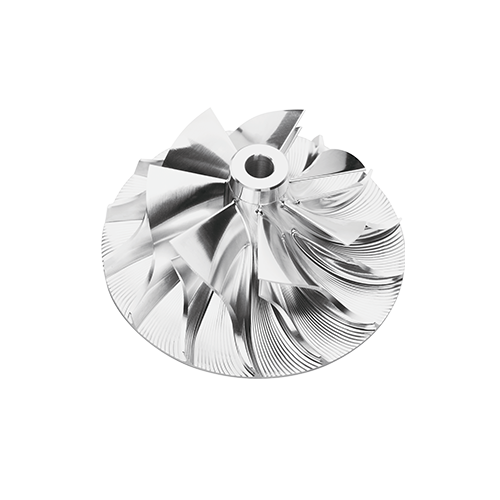In the field of CNC machining, faced with numerous aluminum alloy models, many customers encounter a core question: "Which one should I choose?" In fact, there is no absolute "best" choice for aluminum alloys. The key lies in combining your specific needs—including factors like machining difficulty, strength requirements, corrosion resistance, and cost budget—for a comprehensive evaluation. Among the many models, the 6000 series (represented by 6061) and the 7000 series (represented by 7075) are the two most widely used and comprehensively outstanding materials. This article will detail their characteristics and provide practical selection advice.
1. Detailed Explanation of Aluminum Alloy Models and Characteristics
1.1 6061 Aluminum Alloy
6061 aluminum alloy is the most common and popular material in CNC machining, hailed as the "versatile option among aluminum alloys." Its core advantage lies in excellent machining performance: easy to cut, drill, and mill, maintaining low tool wear even during high-speed machining, with a high surface finish after machining that can reduce subsequent polishing processes. In terms of mechanical properties, 6061 is a medium-strength aluminum alloy with a tensile strength of about 125 MPa. Although not as strong as steel, it is sufficient for most structural components. Additionally, it possesses good weldability and corrosion resistance, suitable for various surface treatments (such as anodizing, spraying, etc.).
Typical application scenarios: General mechanical parts, automation equipment components, robot joints, electronic enclosures, frames, heat sinks, etc. If your part does not require high strength but needs good overall performance and machinability, 6061 is the safest choice.
1.2 7075 Aluminum Alloy
7075 aluminum alloy is the standard material in the aerospace field. Its strength (tensile strength can reach over 220 MPa) is close to that of ordinary steel, but it weighs only one-third as much. This alloy primarily uses zinc as the main alloying element to achieve a very high strength-to-weight ratio. In terms of machining characteristics, 7075 has good machinability, but due to its high hardness, it tends to generate heat during machining. Controlling cutting speed and using sufficient coolant are necessary to avoid material overheating or premature tool wear. It is important to note that 7075 has poor corrosion resistance and usually requires surface treatment (such as hard anodizing) to protect the part.
Typical application scenarios: Aircraft structural components, high-load robotic arms, precision fixtures, racing car parts, military components, etc. If your design needs to withstand severe impact or continuous high loads, 7075 is an irreplaceable choice.
1.3 Other Alternative Models
5052 Aluminum Alloy: Has excellent corrosion resistance (especially in marine environments), medium machinability, and low strength. Often used for fuel tanks, ship components, and chemical pipelines where light load but high corrosion resistance is required.
2024 Aluminum Alloy: High strength and good fatigue resistance, but poor corrosion resistance, requiring surface treatment after machining. Commonly found in aircraft skins, high-strength structural components, and other scenarios where corrosion resistance is not critical.
2. How to Scientifically Select Materials?
2.1 Machining Difficulty and Efficiency
If your project has high requirements for machining efficiency, surface quality, and tool life, 6061 is the preferred choice. Its low cutting resistance makes it suitable for complex geometric shapes, helping to shorten delivery cycles and reduce costs. In contrast, 7075 requires more careful machining parameters and more wear-resistant tools, making it suitable for experienced machining teams.
2.2 Strength and Durability
For load-bearing structures, dynamic loads, or safety-critical parts, the high strength and hardness of 7075 are decisive advantages. For example, in automated equipment, 7075 can be used to manufacture high-precision guides or transmission components, while 6061 is more suitable for non-load-bearing parts such as enclosures or brackets.
2.3 Corrosion Resistance and Environmental Adaptability
If the part will be exposed to humid, acidic, alkaline, or outdoor environments, 5052 or 6061 with surface treatment are ideal choices. 7075 and 2024 have weak corrosion resistance without surface treatment and require additional protective processes.
2.4 Cost and Delivery Cycle
6061 is lower in price and easy to procure, effectively controlling overall costs. 7075, due to its alloy composition and process requirements, is typically 30%-50% more expensive. In scenarios with limited budgets or where extremely high strength is not required, 6061 offers the best cost performance.
Contact Us
If you have any questions about material selection or need professional CNC machining services, please feel free to contact us. Our team is ready to assist you.
Material Selection and Machining Services at Rapid Model
At Rapid Model, our engineering team not only provides professional material selection advice but also recommends the most suitable aluminum alloy model based on your design needs and budget. For example, when designing a drone fuselage for a client, we compared the lightweight and easy-to-machine characteristics of 6061 with the high-strength advantages of 7075, ultimately helping the client choose 7075 for key load-bearing parts and 6061 for non-critical structures, achieving an optimal balance between performance and cost. Additionally, our CNC machining centers are equipped with advanced cutting and cooling systems, capable of efficiently processing various materials from 6061 to 7075, ensuring high precision and consistency even in mass production.
Why Choose Rapid Model?
At Rapid Model, we focus on providing customers with one-stop CNC machining solutions. From material selection, process optimization to rapid delivery, we ensure every part meets the strictest quality standards. Our services include: rapid quotation, professional material selection advice, multi-axis CNC machining, surface treatment, and full-process quality inspection. Whether for prototype trial production or mass production, we can help accelerate your product time-to-market with competitive prices and agile delivery cycles. Contact us now for a customized machining solution!



